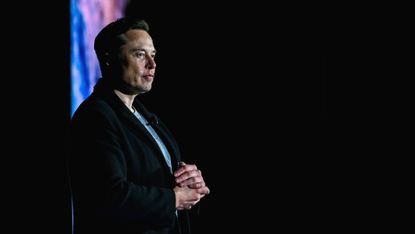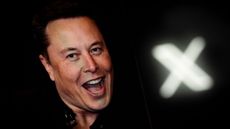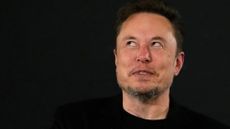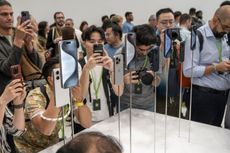Elon Musk: the shocking degree of power wielded by an erratic billionaire
Washington has spent billions pushing for alternatives to SpaceX, but they’ve failed to deliver

Forget his wealth, said Ronan Farrow in The New Yorker. It’s the sheer power Elon Musk wields today that should shock us. The billionaire’s rocket company, SpaceX, is currently the sole means by which Nasa can get astronauts into space from US soil. Another of his ventures, Tesla, controls the nation’s biggest network of electric-vehicle charging stations.
Musk’s Starlink satellite internet service, meanwhile, is Ukraine’s main battlefield communication tool. Pentagon officials had to plead with Musk last autumn after some Ukrainian units lost access to it. Musk had earlier demanded that the US pay for Ukraine’s discounted Starlink service, and had started pushing a pro-Russia peace plan, apparently dreamed up after one-to-one talks with Vladimir Putin. The US has now struck a deal on Starlink, but Pentagon officials remain uneasy about their reliance on Musk. “We are living off his good graces,” said one. “That sucks.”
Musk’s erratic behaviour makes his level of influence all the more alarming, said Peter Csathy in The Wrap. Look at his disastrous efforts to remake X, formerly known as Twitter. Since buying the platform last year, he has alienated advertisers and users by letting hate speech flourish and by firing staffers responsible for maintaining critical infrastructure.
Subscribe to The Week
Escape your echo chamber. Get the facts behind the news, plus analysis from multiple perspectives.

Sign up for The Week's Free Newsletters
From our morning news briefing to a weekly Good News Newsletter, get the best of The Week delivered directly to your inbox.
From our morning news briefing to a weekly Good News Newsletter, get the best of The Week delivered directly to your inbox.
For now, Washington is stuck with Musk, said Tim Fernholz on Quartz. It has spent billions trying to build Boeing and Blue Origin into private alternatives to SpaceX, but they’ve failed to deliver. Musk’s firms provide good value to Nasa and the Pentagon; and he, in turn, is reliant on state funding. It was an “incredible stroke of luck” for Musk that Ukraine’s needs emerged just as Starlink was desperately searching for new markets. But this co-dependency isn’t healthy.
It needs fixing, agreed The Washington Post. Ukraine is unlikely to be the last US ally to need the sort of emergency, high-speed internet access Starlink provides. Were Beijing, say, to sever Taiwan’s undersea cables in a conflict, could Washington count on Musk, given that Tesla “depends on its ability to produce cars in China”?
Fortunately, the Pentagon has created a $1.5bn scheme to launch 72 low-orbit satellites of its own. It’s not a great number – Musk has more than 4,500. But it should ensure that “Starlink is no longer the democratic world’s only good option”. A single man must never again have such control.

Continue reading for free
We hope you're enjoying The Week's refreshingly open-minded journalism.
Subscribed to The Week? Register your account with the same email as your subscription.
Sign up to our 10 Things You Need to Know Today newsletter
A free daily digest of the biggest news stories of the day - and the best features from our website
-
 Today's political cartoons - December 1, 2023
Today's political cartoons - December 1, 2023Cartoons Friday's cartoons - the undecided voter, Kissinger's last stand, and more
By The Week US
-
 Quiz of The Week: 25 - 1 December
Quiz of The Week: 25 - 1 DecemberPuzzles and Quizzes Have you been paying attention to The Week's news?
By Harriet Marsden, The Week UK Published
-
 Cop28: is the UK serious about tackling climate change?
Cop28: is the UK serious about tackling climate change?Today's Big Question The UK government has watered down a number of climate policies in recent months
By Sorcha Bradley, The Week UK Published
-
 Antisemitism on X: Elon Musk goes 'thermonuclear'
Antisemitism on X: Elon Musk goes 'thermonuclear'Why everyone's talking about Social media owner takes Media Matters to court over allegations of advertising next to 'pro-nazi content'
By The Week UK Published
-
 Elon Musk's 'frivolous' but precedent-setting free speech fight with Media Matters
Elon Musk's 'frivolous' but precedent-setting free speech fight with Media MattersTalking Point The lawsuit is just the latest in Musk's ongoing tension with social media watchdogs
By Theara Coleman, The Week US Published
-
 How OpenAI went from an altruistic nonprofit to typical Big Tech startup
How OpenAI went from an altruistic nonprofit to typical Big Tech startuptalking point Internal tensions over the company prioritizing money over safety might be symptoms of a bigger issue
By Theara Coleman, The Week US Published
-
 Why the Metro Memory game is so addictive
Why the Metro Memory game is so addictiveTalking Point Trying to remember London's 416 Tube stops has attracted half a million players so far
By Sorcha Bradley, The Week UK Published
-
 The advent of the AI iPhone: does new tech show promise or peril?
The advent of the AI iPhone: does new tech show promise or peril?Talking Point Apple design guru Jony Ive and OpenAI founder Sam Altman believed to be in talks to create new device
By The Week Staff Published
-
 Can Meta woo Gen Z with AI chatbots?
Can Meta woo Gen Z with AI chatbots?Talking Point Meta is set to release the first of dozens of AI 'personas' aimed at driving Gen Z engagement
By Theara Coleman Published
-
 China steals the spotlight at Apple's iPhone 15 launch
China steals the spotlight at Apple's iPhone 15 launchHow will a directive from the Chinese government affect the tech giant?
By The Week Staff Published
-
 Ryanair row: has digital revolution left elderly behind?
Ryanair row: has digital revolution left elderly behind?Talking Point Older people are at risk of ‘digital exclusion’ in an increasingly online world
By Sorcha Bradley Published










